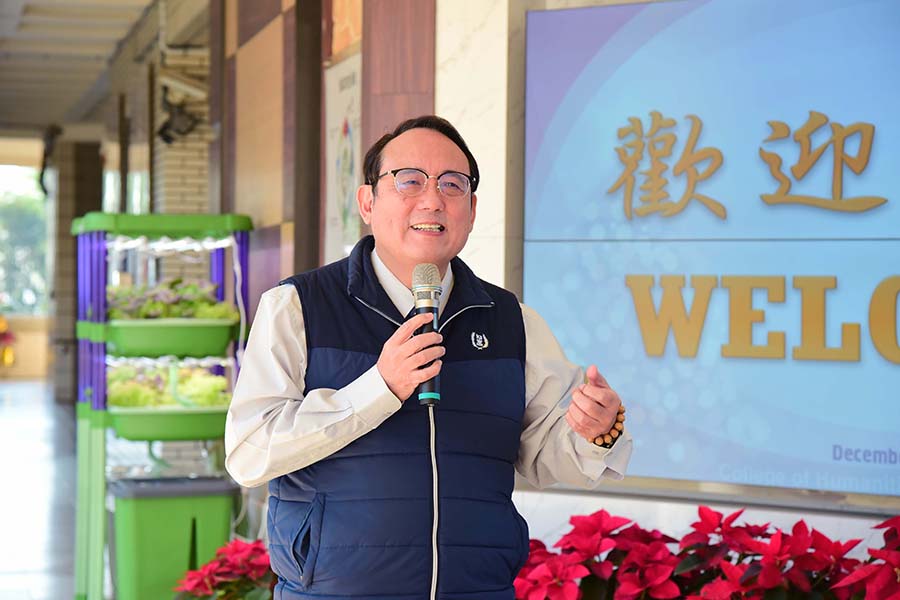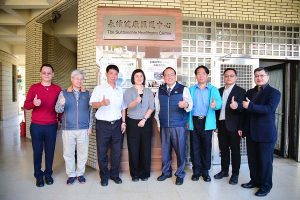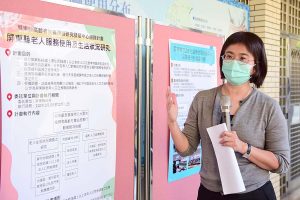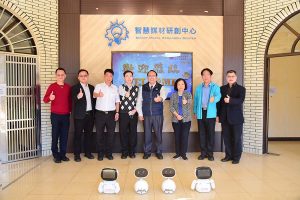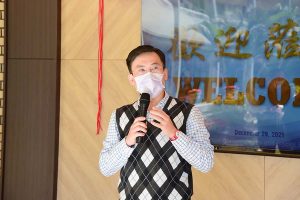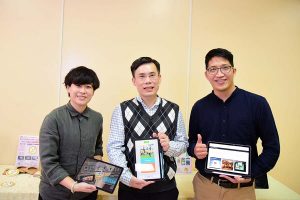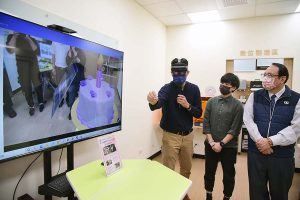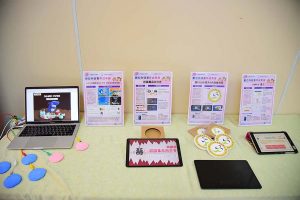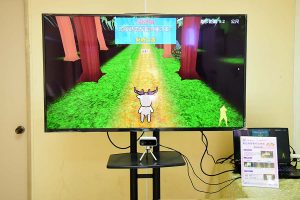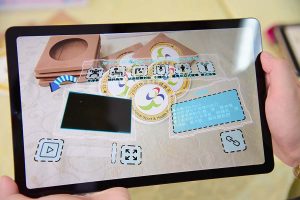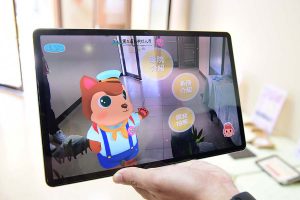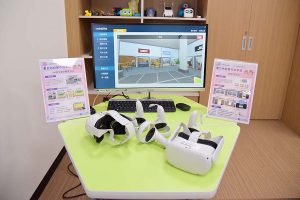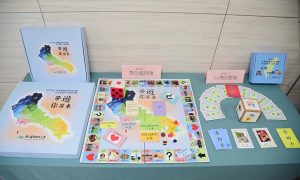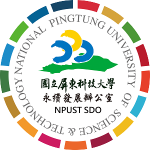In order to increase the job competitiveness of students in the humanities while simultaneously promoting sustainable development, NPUST’s College of Humanities and Social Sciences has established the “Sustainable Healthcare Center” and the “Smart Media Research Center”. On December 29th, NPUST President Chang-Hsien Tai was joined by other school officials for the plaque unveiling ceremony.
At the official opening, President Tai remarked that “NPUST highly emphasizes the cross-domain capabilities of its students. We hope that when students graduate they will not only be well versed in their own major of study but will also be familiar with the applications of other fields of knowledge. To promote the implementation of healthcare, we have incorporated the eight main indexes of the World Health Organization’s “Age-friendly Cities and Communities” initiative and Taiwan’s “Aging Society White Paper Action Strategy” into a survey on the living situations and welfare service needs of elderly people living in Pingtung County. With respect to cross-domain technology, if we take the NPUST Department of Modern Languages as an example, when students graduate, not only are they able to work as English teaching professional, they can also make use of the technical skills they have learned in the cross-domain courses to continue with technology-related courses taught in English or they can take an English-specialized position at a technology company”.
The dean of the college, Vincent Shih, expressed that “with regards to the cultivation of talent in the area of healthcare, under the guidance of the center’s director, Chao Shan-Ru, we are bringing in nursing, social work and long-term care practitioners to establish an interdisciplinary guidance team and improve the service quality of community-integrated services. We have also established the “Long-term Care Curriculum – Cross-domain In-home Services Micro-Course”, “Care Attendant Training Course” and the “Care Attendant Level 1 License Course”. Additionally, this year, instructions on leading board game activities and community services were introduced to increase the diversity of students’ long-term care capabilities. Meanwhile, at the Smart Media Research Center, Director Pao-Nan Chou has recruited teachers from the college with technical expertise to form a core cross-disciplinary team. The center has a variety of educational robots, VR equipment, 3D printers, and laser engraving machines. The center often assists various departments in the college with the development of cross-discipline science and technology teaching activities, and offers technical license courses on the weekends”.
The Sustainable Healthcare Center follows the UN’s Sustainable Development Goals and coordinates with the important health and welfare policies currently promoted in Taiwan. It also incorporates the university’s “Platinum Societies” development objective with the aim of promoting and publicizing health and wellbeing, cultivating healthcare talent, guiding and nurturing health-related units and researching health care-related issues. These activities are used to strengthen the cross-domain healthcare knowledge of students, expand their employment opportunities and salary levels, promote the college’s health care courses and increase industry-academia research cooperation.
The Smart Media Research Center is a central unit set up to strengthen students’ cross-disciplinary scientific and technological capabilities and develop emerging technologies and materials and smart media with educational value. During the preparation process, the center assisted various departments in the college with the organization of science and technology-related activities. For example, the distance learning practices used by the college during the pandemic, the teaching science in English at primary schools, the Center for Teacher Education’s vocational high school community “maker education” course, augmented reality picture book teaching at the Department of Child Care, and the study of data analysis courses in technical vocational institutions. Currently, a number of virtual reality teaching plans are also being discussed with the Graduate Institute of Hakka Cultural Industry, the Department of Recreational Sport & Health Promotion, and the Department of Social Work.




